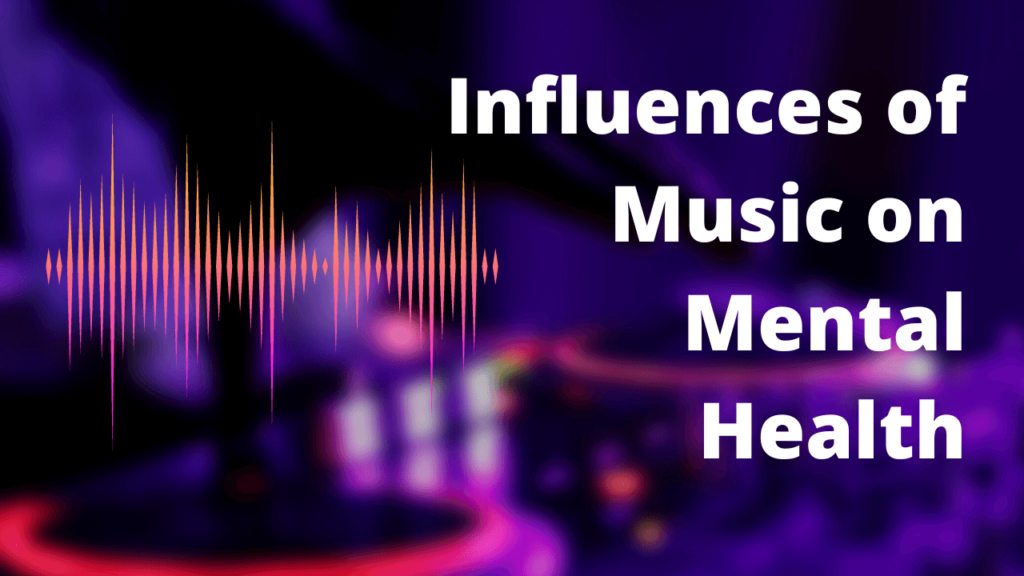Imagine listening to your favorite song and feeling your mood instantly lift or you may have a playlist that you listen to before you go off to sleep to help you unwind and relax. These experiences highlight the incredible emotional power of music, demonstrating how it can be a source of solace, inspiration, and transformation in our lives. Music, the sweet melody that flows through our ears, profoundly impacts our mental health. It isn’t just something we enjoy; it’s a powerful tool that can change our mood, improve our mental well-being, and offer comfort during tough times.
Also, read – How Does Mental Health Affect Students
Let me tell you a short story about my friend Sarah. She used to feel very worried. But one day, she found soothing music. She listened to it during the day and before bed. It helped her feel less worried and more peaceful. In this blogpost, we’ll talk about how music can help our minds feel better, using stories like Sarah’s to explain how music can be like a helpful friend for our mental health.
How Does Music Affect Our Mood?
Have you ever wondered why a sad song can make you feel even sadder, while an upbeat melody can instantly lift your spirits? Music has a unique ability to influence and even transform our emotions. In this section, we’ll explore the fascinating ways in which a piece affects our mood.
1- The Power of Melody and Rhythm
Music has the remarkable power to tap into our emotions through melody and rhythm. When we listen to music, our brains process the various musical elements, such as tempo, pitch, and harmony. These elements trigger emotional responses within us.
- Elicits Emotions: Music can evoke a wide range of emotions. For example, a slow, melancholic tune can resonate with feelings of sadness, while an upbeat, energetic song can make us feel joyful and enthusiastic. The music’s emotional impact is often tied to its tempo, key, and lyrics.
- Mood Regulation: Have you ever turned to your favorite songs to match your mood? Many people use music as a form of mood regulation. If you’re feeling down, you might listen to music that mirrors your emotions, providing a sense of understanding and validation. Conversely, when you want to improve your mood, you can select music that uplifts and energizes you.
2- The Role of Brain Chemistry
Beyond just eliciting emotions, music also has a profound impact on our brain chemistry.
- Dopamine Release: When we listen to music we enjoy, our brain releases dopamine, a neurotransmitter associated with pleasure and reward. This release of dopamine can create feelings of happiness and euphoria, explaining why music often feels so good.
- Stress Reduction: Music can significantly reduce stress and anxiety. Listening to soothing melodies can lower the levels of stress hormones in our bodies, promoting a sense of calm and relaxation. This is particularly helpful during challenging or stressful times.
- Enhanced Emotional Expression: Music provides a unique outlet for emotional expression. When we can’t find the right words to convey our feelings, music can step in and talk for us. It becomes a vessel through which we can process and release pent-up emotions.
How Does Music Help to Improve Our Mental Health?
Now, let’s delve into how music can be a powerful ally in enhancing our mental well-being.
- Reduces the Symptoms of Depression: Have you wondered how music can make a gloomy day seem brighter? Well, music can reduce the symptoms of depression. Listening to your favorite songs can elevate your mood and provide emotional relief. It can also be a way to express your emotions when words fail.
- Boosts Confidence: Ever noticed how music can make you feel like you can conquer the world? It boosts confidence. Singing along to your favorite songs or playing a musical instrument can give you a sense of accomplishment, helping you feel more confident in yourself.
- Builds Motivation: Have you ever used music to pump yourself up before a big task? Many of us do! Music can be a fantastic motivator. It provides a rhythmic backdrop to our activities, making tasks seem more manageable and even enjoyable.
- Reduces Anxiety: Music can be a source of solace during anxious moments. The soothing melodies and harmonious tunes can reduce feelings of anxiety and stress. It can slow down racing thoughts, providing a moment of tranquility.
- Improves Focus: Have you tried studying or working with music in the background? Music can improve focus by blocking out distractions. The right music can create an ideal environment for concentration and productivity.
- Improves Memory: Did you know that music can enhance your memory? It’s true! Songs often have a way of sticking in our minds, helping us remember things more easily. Melodies can trigger memories and make learning more enjoyable.
If you are looking for ways to improve your mental health, consider adding more music to your life. Here are a few tips:
- Create a playlist of songs that make you feel good. Listen to this playlist whenever you need a boost of positivity.
- Listen to calming music before bed to help you relax and wind down.
- Sing along to your favorite songs in the shower or car. This is a great way to boost your mood and have some fun.
- Join a choir or band. Playing music with others is a great way to socialize and connect with others.
- Seek out music therapy if you are struggling with a mental health condition. Music therapy is a type of therapy that uses music to improve mental health and well-being.
Conclusion
Music isn’t just a form of entertainment; it’s a powerful tool that can positively influence our mental health. Whether you’re feeling down, need a confidence boost, or want to enhance your focus, music can be your companion on this journey towards improved well-being. So, don’t hesitate to turn up the volume and let the music work its magic on your mental health.
This is a collaborative post supporting our Peace In Peace Out initiative.


